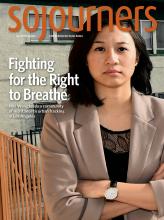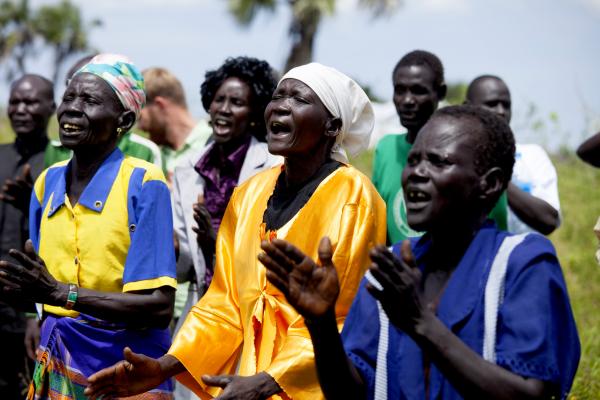SOUTH SUDAN is the world’s youngest and most fragile state. The outbreak of civil war in 2013 pushed millions out of the country and into refugee camps. Oil revenues fuel President Salva Kiir’s regime, notorious for kidnapping and torturing those who criticize him.
Kiir’s suppression hasn’t stopped courageous Christian women from taking their prayers for peace to the streets. On the first Saturday of every month, hundreds of women gather to demand an end to war.
“All 64 tribes are represented in the women’s division of the South Sudan Council of Churches,” said Maria Bol (not her real name), a member of the ecumenical body responsible for organizing the marches. “The challenge in South Sudan is that the government has no tear gas. They just use live bullets against peaceful protesters. But our actions often go on uninterrupted, since they know we are peaceful and prayerful.”
Although the international media portrays South Sudan’s women and youth as passive victims of their tragic circumstances, it is exactly these demographics that are pushing back against this brutal regime. In November, youth members of more than 40 women’s organizations convened the largest anti-war demonstration since the war began. Thousands turned up, wielding messages of peace while Kiir’s national security forces—responsible for intimidating and abusing his critics—attempted to single out leaders.
These leaders continue to suffer—some even being intimidated in the neighboring countries to which they fled—and threats continue against their family members back home.
Read the Full Article

